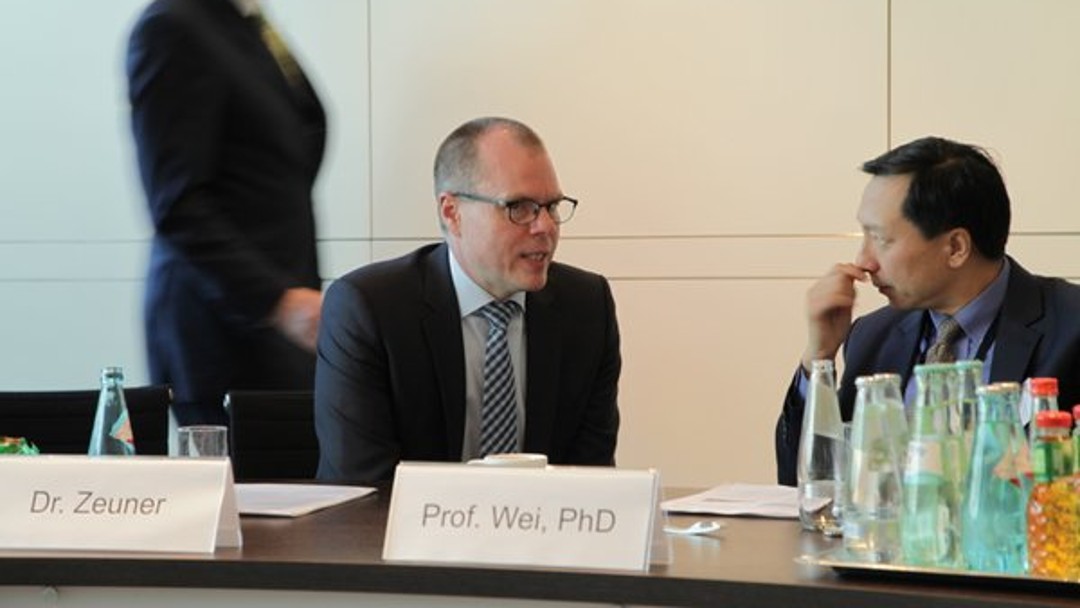News from 2016-05-04 / KfW Development Bank
Asia remains a booming region
Shang-Jin Wei, the ADB’s Chief Economist, continues to see China as a growth engine at the KfW Round Table
Asia remains a driving force for growth in the global economy, with China still recording the most dynamic development, explained the Chief Economist of the Asian Development Bank (ADB) during the KfW Round Table in Frankfurt. Jörg Zeuner, KfW’s Chief Economist, had once again invited participants to the "Round Table of Chief Economists", which takes place three times per year.
Mr Wei explained to the numerous chief economists of German banks and insurance companies, as well as to the banking associations and KfW representatives, that the Asian developing and industrialising countries are still posting the strongest economic growth rates in the world. The region’s gross domestic product (GDP) is expected to grow by 5.7 % in real terms during 2016, while the ADB is expecting a further 5.7 % growth for 2017. By comparison, the global economy is projected to grow by just 3.2 % in 2016. This development makes the region a driving force for growth around the world.
But the times of double-digit growth rates are a thing of the past in China too – which has been a booming region for a long time now. Mr Wei is expecting China to develop robustly to achieve comparatively low growth in the region of roughly 6.5 % per year.
Fundamental changes are taking place in China. Mr Wei mentioned the fact that the economy is being reorganised – shifting away from labour-intensive sectors such as the textile and heavy industries and towards more knowledge-intensive sectors and services. This change also goes hand in hand with a rise in wages and private consumption.
In addition, China is also feeling the effects of demographic change, as the population growth rate is dropping. More and more people are approaching retirement age, which is curbing future growth potential. Mr Wei clearly highlighted the substantial differences in Asia between the levels of development and the current and potential growth rates. He believes that very diverse economic policies are being pursued. To illustrate this, he referred to the situation of India and Indonesia, where there is need for fundamental reform and the governments are definitely setting the right standards, butimplementation sometimes remains difficult.
The currently low global market prices for oil and other natural resources are having different effects in Asia. Indeed, while importing countries such as China and India are benefiting from this development, exporting countries such as Mongolia or Malaysia are suffering from declining foreign exchange receipts.
Mr Wei’s presentation was followed by a lively discussion. The chief economists present predominantly agreed with the analysis and conclusions put forward by the ADB’s Chief Economist. But they also agreed that the economic upheavals in China and the numerous other global risks caused uncertainty too. The examples given in this regard were the high level of corporate debt in China, industrialised countries’ monetary policy, the problems in the Eurozone, turmoil on the financial markets and the crises in the large industrialising countries Russia and Brazil.


Share page
To share the content of this page with your network, click on one of the icons below.
Note on data protection: When you share content, your personal data is transferred to the selected network.
Data protection
Alternatively, you can also copy the short link: https://www.kfw-entwicklungsbank.de/s/enzBWrMC.BWbA
Copy link Link copied